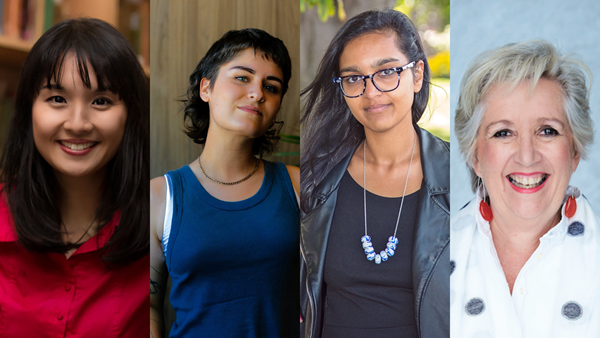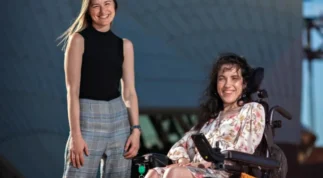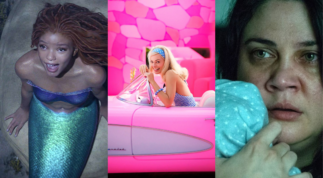To mark International Women’s Day 2023, we spoke with feminist thinkers and makers Alice Pung OAM, Zoya Patel, Madison Griffiths, and Jane Caro about the best bit of advice they’ve come to know over the years and the impact this pearl of wisdom has had on them. Take a look:
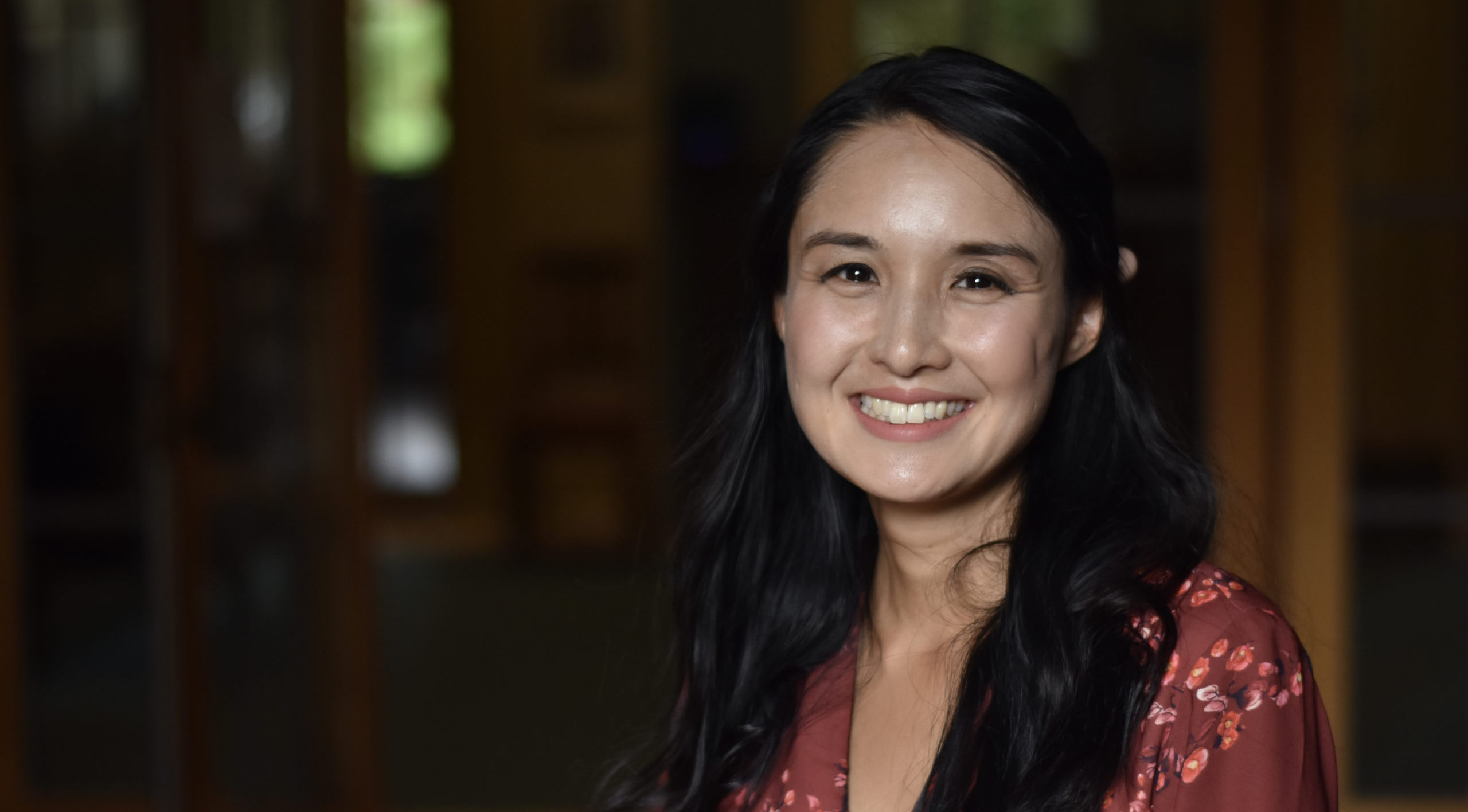
Alice Pung OAM
Award winning author
“Always make sure you have a paying job, and always save your money.”
My mother began her working life at thirteen. She worked in a plastic bag factory in Cambodia.
Once, the plastic bag slicing machine hacked off a huge chunk of flesh from her leg. In the two weeks she was away from work recovering, the one thing she worried about was whether she would be replaced by another nimbler child.
A few years later, mum’s family were living hand-to-mouth. They’d spent their savings sending mum’s beloved sick granny to hospital, but she died anyway. My teenaged mother retrieved a jar from under her bed containing all her savings: enough to pay for the funeral her parents couldn’t afford.
For my mother, money was independence, a response to the most immediate and important events in life. She always supported my paid work – whether it be as a salesperson at my dad’s electrical appliance store, teaching art classes to children in housing commission flats, beginning my articled clerkship in a law firm, my writing work, my school visits. She knew that having money as a woman would not prevent the vicissitudes of life, but could offer some insulation from the blows.
Alice Pung OAM is a writer, lawyer and teacher. She is the author of Unpolished Gem, Her Father’s Daughter, Laurinda and Writers on Writers: Alice Pung on John Marsden.
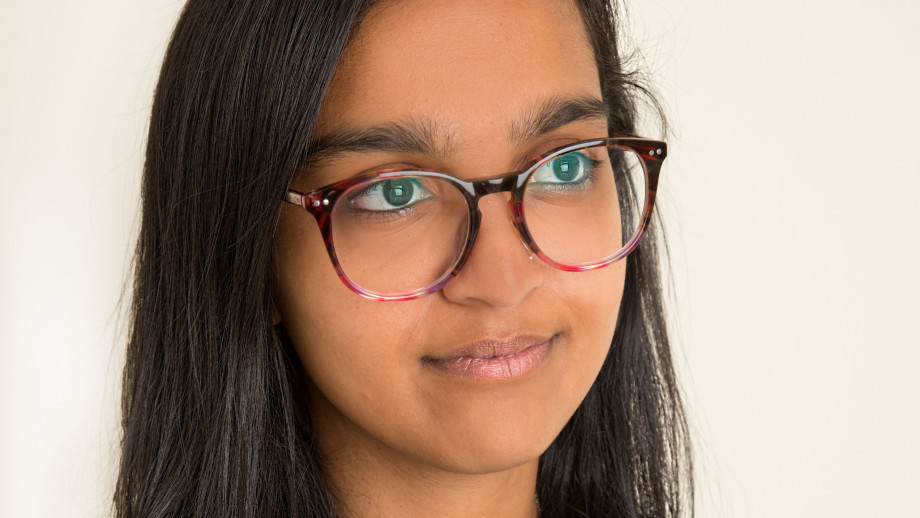
Zoya Patel
Writer & editor
“I am not free while any woman is unfree, even when her shackles are very different from my own.”
I have not been on the receiving end of much feminist advice, but have gleaned what I have learned from feminist writing that has been shared for generations. And one feminist who has had an impact on me is Audre Lorde, in particular this quote: “I am not free while any woman is unfree, even when her shackles are very different from my own.” To me, this speaks to the importance of feminist action being about collective struggle. I want to strive for the most vulnerable amongst us, and often that means looking beyond the immediate challenges I face and addressing issues like access to affordable childcare, housing security, income equality etc, that don’t present themselves as barriers to me personally.
I have the immense privilege of being middle-class, tertiary educated, and having a level of financial security that defines every other aspect of my life. For many women of my circumstances, it is easy to turn our feminist energy to things like self-care, boundary-setting, women’s representation in the media, etc – but for me, these issues are secondary to the systemic inequality still faced by women and gender diverse people who are living in poverty or with financial insecurity, who’s economic inequality prevents them from accessing the benefits of feminist progress that we might. That’s not to say that we can’t focus our attention across the spread of feminist issues, but I do think that those of us with the most privilege need to use it to drive change for the most vulnerable as a priority. So for me, Lorde’s reminder that our struggle is shared, and is not over until we are all free, is a mantra I try and live by.
Zoya Patel is the author of No Country Woman, a memoir of race, religion and feminism. She is co-host of The Guardian’s Book It In podcast, and the Margin Notes podcast alongside Yen Eriksen. Zoya is a columnist for the RiotACT, and regular books critic and writer for The Guardian, Canberra Times, SBS Voices, Refinery29 and more. Her debut novel Once a Stranger is now available online and at bookstores across the country.

Madison Griffiths
Writer, artist and producer
“We do not have to conform to the way our life has been written for us, especially by those who are less imaginative than ourselves.”
I first discovered Deborah Levy in my early-twenties. This period of my adulthood was a complex one, a time when I felt as if my sense of self was rubbing up against many aspects of the world-at-large. I wanted my womanhood to feel, and be, expansive: to push the boundaries of what I had long been told was acceptable, or encouraged. When Levy writes, “we do not have to conform to the way our life has been written for us, especially by those who are less imaginative than ourselves”, I hear a declaration: that the margins within which we are expected to conform were never decided upon by us. To be a woman is to be whatever you want it to be. It does not live in the aged, stale barricades of what others have decided it ought to function like.
For feminism to work, per se — for it to last, and to last well — its vision has to be imaginative, unorthodox, and — at times — whimsical. Feminism can, and does, offer a retort against the structures, standards and assertions of a humdrum patriarchy. To piggy-back Levy’s suggestion, I want to ask: if you could be whoever you wanted to be, what would that look like? And, furthermore: in what ways can you offer others the freedom to do just that, to imagine themselves freely?
Madison is a writer, artist and producer. Her work has appeared in the Guardian, VICE, The Age, Kill Your Darlings and more. She wrote and produced the critically acclaimed podcast Tender, which follows what happens after women leave abusive relationships. Her debut novel Tissue, forthcoming with Ultimo Press, is a boldly poetic meditation on abortion and what it has the power to represent.
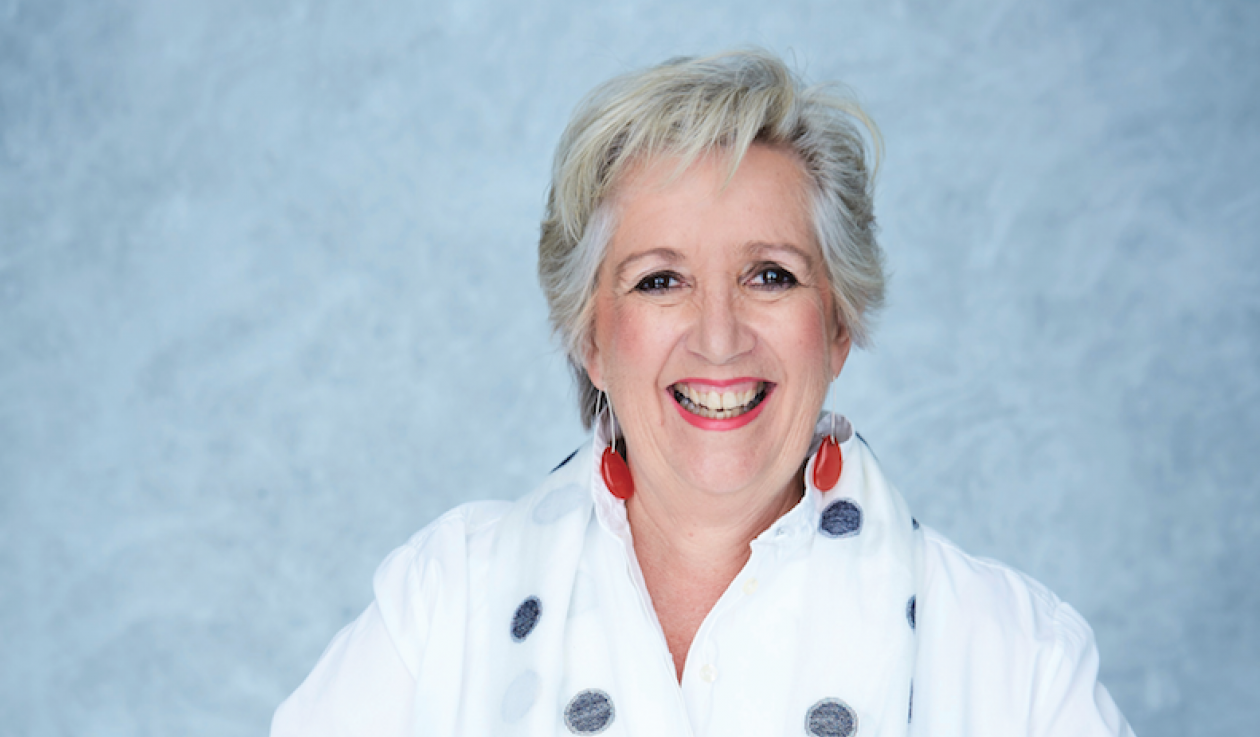
Jane Caro
Commentator, writer and lecturer
“How much emotion is too much? How much is too little? And who decides?”
I was a crazy, mixed-up twenty-something, sobbing into a tissue my counsellor had handed me from the box that sat on the coffee table in her office. I had spent the day on set filming a TV commercial I had written. I voiced an opinion about a shot, trying to stay true to the idea (my idea)! I won the point. For daring to do so I was berated publicly by the Agency Producer. He treated me like a naughty schoolgirl, and I burst into tears. This response exasperated him further.
“Oh, tears now, is it? You are so emotional, always over-reacting!”
I finished my tale of woe.
“Do you think he was right?”
“What do you mean?”
“That you are too emotional? That you over-react?”
Tears flooded back. “Well, lots of people tell me I do, so I must.”
“So, tell me how much emotion is too much? How much is too little? And who decides?”
I looked at her in astonishment. The absurdity of her questions revealed something I have never forgotten.
“You mean – by accepting his right to decide how much or how little I should react, I gave him all my power?”
“Exactly.”
I have never forgotten that simple set of questions and have used them many times since, including in a somewhat hostile radio interview recently. They shut just about everyone up.
Nowadays we call it gaslighting.
Jane Caro is a writer, lecturer, and social commentator. Her books include: The Stupid Country: How Australia is Dismantling Public Education, co-authored with Chris Bonnor, The F Word. How we learned to swear by feminism, co-authored with Catherine Fox, among others. She is also the mother of two daughters, as well as being a wife, a beef producer and a timber grower.
